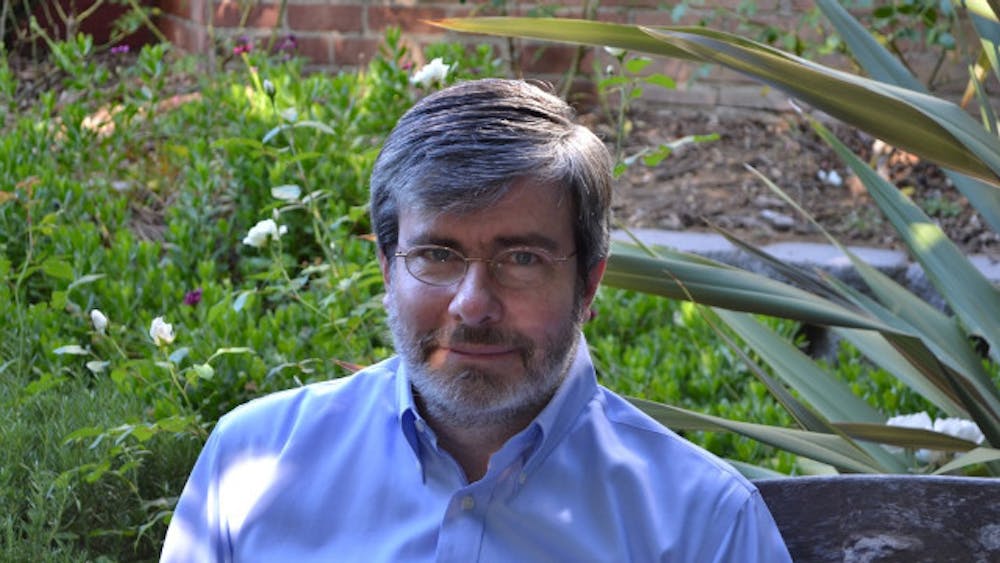Middlebury College Republicans will bring Richard Sander, a professor of law at UCLA, to campus on April 3 to discuss his criticisms of affirmative action. Sander’s talk, entitled “Mismatch: Does Affirmative Action Hurt More Than It Helps?” will discuss his “mismatch theory,” which contends that racial preferences such as affirmative action hurt minority students by placing them in overly competitive environments, where their skill sets are not ample.
The event will be open only to Middlebury College ID holders, and will take place at the Kirk Alumni Center, which is located next to the college’s golf course. Following the lecture, Sander will be joined by Caitlin Myers, professor of economics, who will moderate a discussion and Q&A.
Sander is best known for his critique of affirmative action policies and his work surrounding housing segregation. He devoted his early career to researching fair housing policies before serving as president of the Fair Housing Congress of Southern California and founding the Fair Housing Institute. Sander also worked to assess the outcomes of racial preferences in admissions.
In 2004, he published a study reviewing the impact of affirmative action on black students at UCLA law school. The study concluded that affirmative action policies resulted in the acceptance of students whose capabilities were inadequate for the institution’s academic rigor. Sander goes on to connect this “mismatch” of academic ability to black students’ higher attrition rates, and extrapolates that there would be 7.9 percent more black law students passing the bar test had affirmative action policies not existed.
This 2004 study, alongside several cited studies and personal anecdotes, served as the basis for Sander’s 2012 book, “Mismatch: How Affirmative Action Hurts Students It’s Intended to Help, and Why Universities Won’t Admit It,” where he formally introduced “mismatch theory.”
“Sander is a proponent for racial preference programs in admissions,” said Jigar Bhakta ’18, co-president of the College Republicans, “However, his arguments point out (whether right or wrong, empirically) that there is a deep flaw in how affirmative action is being implemented, and that serious reforms are needed to actually further the goal instead of perpetuating a self-destructive cycle of pinning down those it’s intended to prop up.”
In his own words, during an interview for The Atlantic, Sander said, “Many of the people who do research on this, including me, think that racial preferences are also desirable and should be part of any system that we have—as long as we’re paying close attention to whether there are harmful side effects, boomerang effects, in the process.”
Sander’s theories on affirmative action have also received much push back, with several studies disproving his conclusions. For example, a 2015 study by Yale law professors Ian Ayres and Richard Brooks conclude that by eliminating affirmative action, the number of projected black lawyers actually decreased by 12.7 percent.
During his talk in April, Sander will seek to provide evidence for and explain his theories. In addition, Sander plans to focus on discussing the difficulties of conducting empirical research on contentious social topics, as well as the challenges of engaging other academics and the public in constructive dialogue regarding such research. “Part of the failed manifestation of affirmative action, (Sander) argues, is the taboo nature of discussing the facts of affirmative action,” explains Bhakta ’18.
Caitlin Myers, whose research similarly looks at contentious social issues, was selected by the College Republicans to serve as a moderator in the discussion and the Q&A. “My role is to attempt to engage in a substantive, rigorous, and critical dialogue following Sander’s presentation, and to help bring in more voices from the audience,” Myers said. “If there are members of our community who have questions or comments they’d like to suggest to me in advance, I welcome an email.” Questions can also be submitted via an anonymous Google form at go.middlebury.edu/sanderquestion.
The lecture will be held in the Kirk Alumni Center, located beyond the Athletics Center and above the Ralph Myhre Golf Course clubhouse. The College Republicans chose the venue after evaluating with members of the administration a variety of spaces that would both meet their goals and the College’s need for security.
Given Middlebury’s new Interim Procedures for Scheduling Events and Invited Speakers, the process for approval was thorough and comprehensive. The College Republicans formally submitted a request on Jan. 9th and the approval was finalized on March 12th. In accordance with conclusions from the Committee on Speech & Inclusion, the College Republicans will also give advance notice to the community. In addition, the College Republicans have reached out to both specific student organizations that represent underrepresented groups and department chairs notifying them of the event.
The Sander invitation marks the one year anniversary of fallout from protests around Charles Murray’s talk. However, both Bhakta ’18 and Myers remain positive about how the community will react.
“I think we as a community have had our recoil from the overly emotional and content-ignorant reactions to the Murray event,” said Bhakta ’18. “We have all had time to draw our own lines in the sand and reflect on them. I’m not a betting man, but I have faith in us in showing civic discourse and academic debate instead of our fists and pitchforks.”
“Over and over, I have heard Middlebury’s students, staff and faculty express a deep and fundamental desire to create a community that is diverse, inclusive, free and open. The Murray events were deeply painful for so many of us, and we have learned and benefited from the year of reflection that has followed,” Myers said. “I believe the Sander invitation comes from an earnest desire to engage an important question, but I also recognize that it comes as a new opportunity for Middlebury.”
Richard Sander, Promoter of ‘Mismatch Theory,’ to Speak at Middlebury

Comments



